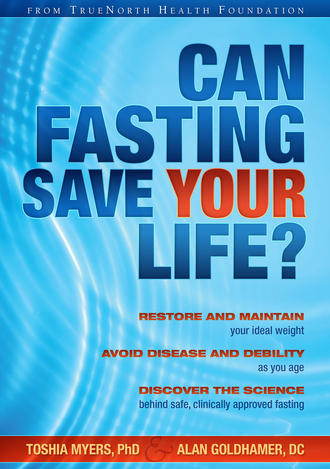Jamie describes how after 38 years of food addiction and bulimia she gave up chemically addictive foods and went on to recover from bulimia (an illness where the feeling of lack of control in one's life can lead to compulsive overeating followed by vomiting in order to prevent weight-gain).
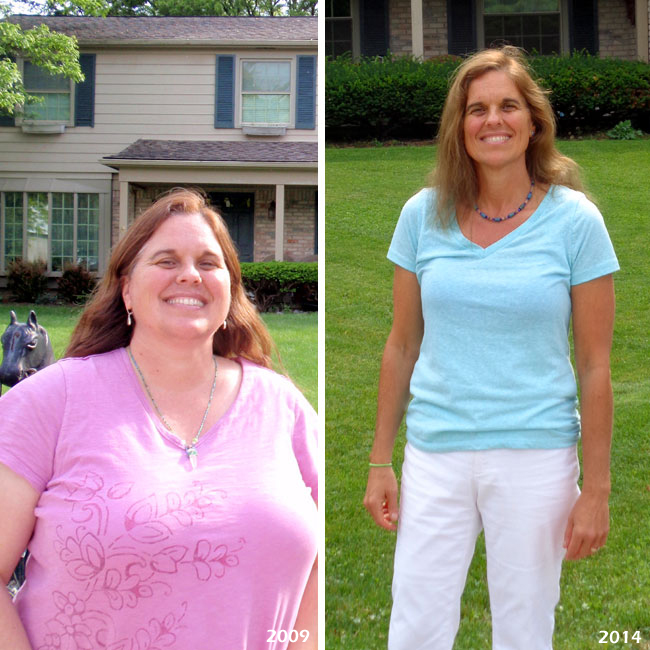
I am a 52-year-old, married mother of three adult sons, and a recovering food addict and bulimic. I want to share my story so that it may give others hope in their struggle with food addiction and bulimia.
My father was an alcoholic and verbally abusive. My mother had very low self-esteem and a lot of self- hatred. Childhood for me was traumatic. I have memories of using food to numb my emotions, stuffing myself until I felt sick and could hardly breathe.
When I was 13 years old I became uncomfortable with my body. I thought I was fat at 105 pounds, and I felt alone. I was in junior high and didn’t have friends to eat lunch with, so I stopped eating lunch at school to avoid the cafeteria. This led to a desire to stop eating, but it didn’t last long.
One day I began self-induced vomiting and then went right back to bingeing on high-calorie foods. Before I knew it I was bingeing and purging almost everything I consumed. I knew this was not right or good for me, but I could not stop. The behavior became extreme when I would consume 10,000 to 30,000 calories a day and purge 15 to 20 times a day.
My addiction was now completely out of control. I was addicted to being thin and had a distorted body image. I didn’t want anyone to know what I was doing, so I isolated myself and lived in secrecy, shame and judgment. To compensate, I worked really hard at pleasing people and trying to be good and look good to others. Shame, the belief that I was bad, began to take over my thoughts. I felt I deserved to be punished and never felt like I was enough.
I continued this behavior throughout high school. Many days I felt so sick and was so weak that I could hardly make it through the day. I felt like I was going to faint, and I had headaches and stomachaches on a regular basis. My family knew about my behavior; they would see the toilet and knew I was throwing up. Their response was to shame and criticize me. I didn’t know how to stop or where to turn for help.
Hiding My Secret
I went on to college and continued the daily bingeing and purging. At this point I was barely able to keep food in my body without feeling a tremendous impulse to purge. It was so scary for me to live in the dorms where the bathrooms were not private. I would wait for just the right moment to go in and purge. Feelings of worthlessness, despair and guilt permeated my days. I ate for emotional relief and to numb my feelings.
I fainted one day and ended up in the emergency room, but I couldn’t tell them about my shameful secret. Later that summer I had another visit because I felt like my stomach was going to explode. No matter how much I ate, I never felt filled up; it was never enough. Again I kept the bulimia a secret and continued the behavior.
I finally reached out for help in my second year of college. After telling the counselor my story, I was told to “Wrap it all up in a package, tie a bow around it, and be done with it.” Well, that did not work for me, so the bulimia continued and, unfortunately, thrived.
The act of assaulting myself with large amounts of food and then purging became powerfully addicting. The binge-purge behavior became a part of my everyday life. Each time I attacked myself with a binge-purge episode I destroyed more of my spirit, self-worth and health. Bulimia robbed me of any joy and peace. It felt like a prison in which my soul was a prisoner who was beaten down daily.
I went on to get married and have children, and I hid my behavior from them all. I lived with daily depression, anxiety and low self-worth. Along with this my health was deteriorating. I had chronic gastric reflux, dehydration, cardiac arrhythmia, major dental problems, swollen salivary glands, and chronic migraine headaches. My cholesterol was high, I always felt fatigued, and I lived with chronic physical and emotional pain.
Because of the large amounts of food I was consuming, I began to gain a lot of weight even though I was purging daily. And after decades of purging, it became more difficult, physically, for me to purge the food. So my weight continued to increase until I hit 230 pounds. The purging was no longer working to prevent weight gain. All of this became too much to manage. I wanted to be free of my life-destroying food addictions and bulimia.
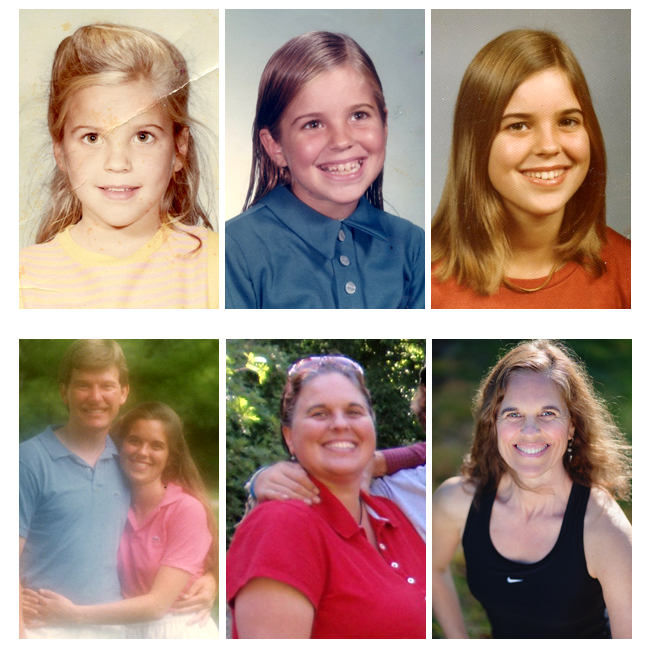
Letting Go of Addictive Foods
I started attending a 12-step addiction recovery group every week. Seeing others who were able to be honest about their own addictions gave me courage to do the same. This experience helped me step out of my isolation and face the fact that I needed help to overcome my addictions.
The first step in my recovery was to admit to myself that my life was completely unmanageable, and that I was powerless to overcome the bulimia and food addiction. I was entirely ready to change and had the will to begin. I realized that the pain of the problem was worse than the pain of the solution. The amazing thing about this honest realization of defeat was that recovery was finally able to begin.
I decided to act with the tiniest ray of hope, and on November 1, 2011 I got really honest with myself: I stopped blaming everyone else and my circumstance, and decided I was going to get off sugar and the chemically addictive foods I craved. I felt that if I could abstain from these foods, I could possibly reclaim my health.
I took one day at a time; it was very hard to change and manage my urges. For me, abstinence worked best because I could not control my addiction by using moderation. I was a food addict and bulimic, and had to face those facts head on.
I began a regular exercise program of strength training, walking, swimming, and yoga. The movement and exercise helped me become more aware of my body, and it also helped the emotional symptoms of depression and anxiety.
Seeking Help for My Bulimia
I started feeling better and lost 50 pounds. But I still had a big challenge ahead of me: conquering the bulimia. I was still bingeing and purging. By now I had been bulimic for 38 years. I was almost 51 years old and I knew I could not keep doing this forever.
I should note that my experience was not typical, in that many bulimics (starting out in their adolescent years as I had) often come out of it much sooner than I did. I had a more serious case considering the frequency of the bingeing and purging, and duration of the addiction. It had taken a significant toll on my body after 38 years. Unfortunately, some bulimics pass away of heart failure, as did the American singer Karen Carpenter in 1983 at the age of 33.
The thought of not having bulimia as a coping mechanism was very frightening. Bulimia was my best friend and worst enemy at the same time. I felt ashamed and self-conscious, and was constantly trying to hide my secret. It digs into you, creating dark thoughts as it undercuts your self-esteem. Life simply becomes a tiring show as you try to put on a happy face to hide your dark secret. I feared talking about it or exposing it. I knew that the only way through it would be to face it and start to change.
One day I was at the gym and saw a flyer a therapist had posted. I liked what I read but did not have the courage to call her. Then a few weeks later I saw her at the gym and asked if I could make an appointment. When I met with her she was kind, non-judgmental and very positive. She told me that if I did purge to try to not shame myself over it. She empathically listened to my story and brought out my strengths, helping me to bring my bulimia out of the darkness and into the light.
She also helped me see that I did not have to define myself by the bulimia or the emotions I felt. As I began to ponder all of her positive, kind and compassionate words, I began to have a real, sustained desire to try and change my life. I began to trust her, and her words of kindness and belief in me.
On June 20, 2013 I mustered all the courage I had, and decided I would try and go just one day without bingeing and purging. I had a great fear of gaining weight in the recovery process, but I had to accept the fact that I might gain more weight in order to get free from the bulimia. It was very hard in the beginning to keep food in my body and not want to purge. But slowly, through trial and error, I began to accept my food and not allow it to be my enemy.
I realized that this process would take time and be very uncomfortable in the beginning. I just kept trying to relearn how to eat without purging. And I began using intuitive eating, where I recognized hunger and fullness, for the first time in my life.
I went one day, then another, and another. This has taken the deepest commitment I have ever made to change my thoughts and behaviors, and look honestly at what got me there, and then figure out how to get free of the bulimia. It has been an incredible journey of learning how to eat healthy, whole foods, keep food in my body, resist the urge to purge, and learn how to get free of my food addictions.
I am developing the inner strength to bear my feelings: sit with them, not judge them, and verbalize them instead of acting them out in my eating disorder. I am learning that I am enough: the food I have is enough, my body is enough, and I have enough of everything I need right now.
My inner strength grew as I continued my daily journey to recovery. I no longer saw myself as irreparably damaged and defective. Each day I approached food by asking myself, “Is what I am eating in my own best interest?” I have come to realize that when I act in my own best interest, it is in the best interest of everyone I love.
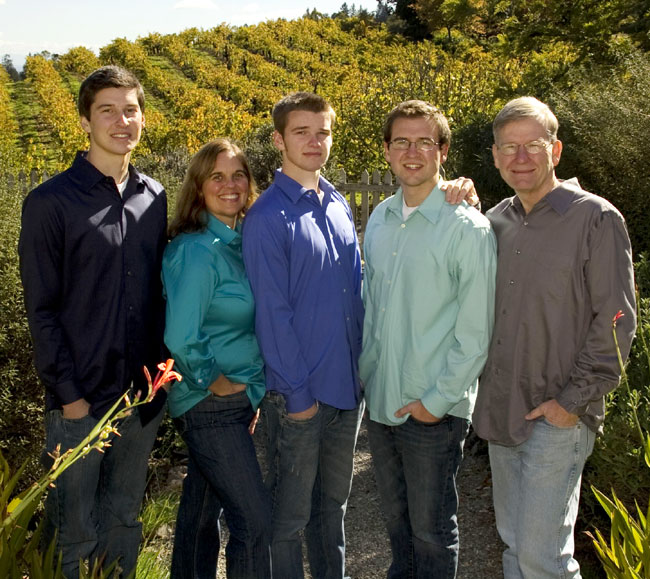
The 12-Step Program
I continued to go to the 12-step program throughout my bulimia recovery, and found spiritual strength in those meetings. I found hope that awakened me to the power of the mercy and grace of God. I came to believe that He could help restore me to spiritual and physical health. I began to pray more and ask God every day to help me live in recovery and abstinence from my addictions.
The power of the 12-step program is a power greater then ourselves. I came to acknowledge that my “will power” had failed me and that I needed a higher power to overcome my addictions. I came to understand that to access that higher power I needed to turn over my addictions, my character weaknesses, and my will, or heart, to God by following the 12 steps of addiction recovery.
With renewed hope in myself, I was able to begin and continue in my plan of abstinence. I am working on being honest with myself and others. I have done a moral inventory of my life, and have looked at and written about the exact nature of my wrongs, and I am seeking to make amends and own my part in past relationships. I am beginning to see my patterns of weakness, and identify those tendencies that I want to change to better my relationships with others and myself. I am trying to not minimize my accountability and avoid self-deception.
I have been able to work on step four and five, and this has allowed me to confess past mistakes and work toward reconciliation of past relationships. All this has been freeing and has helped me sustain my recovery. I have found that as I work to change and understand my character weaknesses, I simultaneously have less desire to use bulimia to cope. Working the 12 steps helps me find true peace and serenity. God continues to help me on a daily basis. I never could have done it without His help, and I know I will need it every day for the rest of my life in order to maintain my recovery.
Lifting the Veil of Shame
As a child, I experienced sustained and relentless boundary invasion on every level. Having no way to stop, control or protest these invasions is what led to my feelings of helplessness, despair and worthlessness. In therapy I allowed my childhood secrets and struggles to be exposed. There was a little girl in there waiting to be loved and nurtured instead of hated and disregarded. I needed to acknowledge her; she needed my love and attention. I did not want to live as a victim anymore. I wanted to be free and lift the veil of shame.
I journal on a regular basis about my recovery and try to disengage from the dark, negative voice inside my head that tells me I am not good enough or thin enough. I am working on dropping the weight of negativity and resentment and forgiving myself and others. I am learning to step out of the shadows of shame and put the past in proper perspective. I am more intentional about giving myself permission to feel my feelings and work through them, rather than immediately turning to food. I try to make my heart and soul a place of peace where bulimia can no longer exist. I am stepping into a softer, more fully present space.
I have come to realize that the negative, critical inner voice never leads to positive sustainable change. Shame is a very unkind motivator. I now understand and believe in my own innate worthiness, and there is nothing I have to “be more of” to deserve love and respect from myself and others.
I believe and understand that the bulimia I struggled with for 38 years was about wanting to purge and get rid of the pain and poison that was inside me. I had to get it out by talking about it and bringing it out into the light. And I now credit myself for being courageous, brave and resilient all of my life and never giving up.
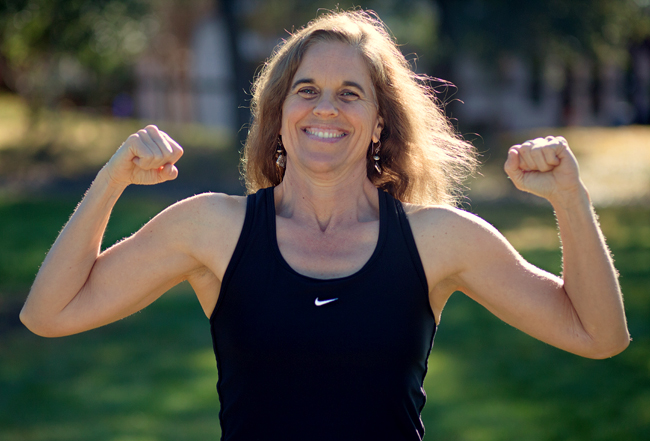
Today: 19 Months Free of Bulimia
I live in gratitude daily that I have been able to reclaim my health and lose 100 pounds. Instead of gaining weight in the recovery process, the opposite became true: I was able to lose another 50 pounds. I now weigh 130 pounds and have been able to sustain this weight. I no longer have any of the symptoms I had being bulimic, and no longer live with chronic pain and fatigue. My cholesterol numbers have gone down over 50 percent, my triglycerides are 39, HDL 51, and LDL 61, and my overall cholesterol is 120. My blood pressure runs around 80/60. I exercise four times a week and find this a very important part of my recovery and staying well.
I have had over three years of complete abstinence from sugar and most processed foods, and have had 19 months of abstinence from the bulimia. Recovery requires a sustained effort and a lot of perseverance, but ultimately it has led to a life I never dreamed would be possible. It is worth every daily effort I have made to get well, and to live the life I always wanted, with dignity and respect for myself and others.
I heard about TrueNorth Health Center from a friend who had also battled food addiction and had stayed at the center. So I decided to check it out for myself. I found the discussions and lectures to be very informative and beneficial in understanding food addiction, cravings, and how to eat a clean, healthy, plant-based diet. I regret that I did not find TrueNorth sooner in my recovery. I have heard and witnessed firsthand how patients there have been helped to understand food addiction and get free of cravings to reclaim their health. I would recommend TrueNorth to anyone seeking help in these areas.
For those who feel like they are in despair, I want to tell you there is a way out, and a way to get free from the bondage of an eating disorder and all the pain surrounding it. I am writing this story in hopes that it will give you the tiniest ray of hope and you can begin to feel free and get free—because you are willing to set yourself free. My hope is that I can inspire others who have suffered from these same addictions to seek recovery and to reclaim their health.
To contact Jamie, email her at rockingresilience gmail [dot] com (rockingresilience[at]gmail[dot]com)
gmail [dot] com (rockingresilience[at]gmail[dot]com)


